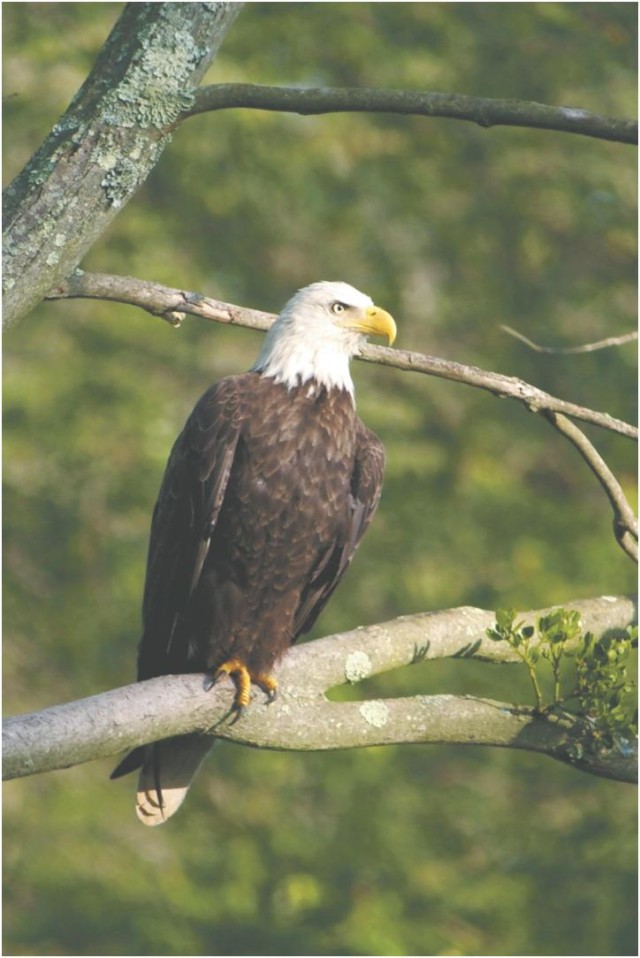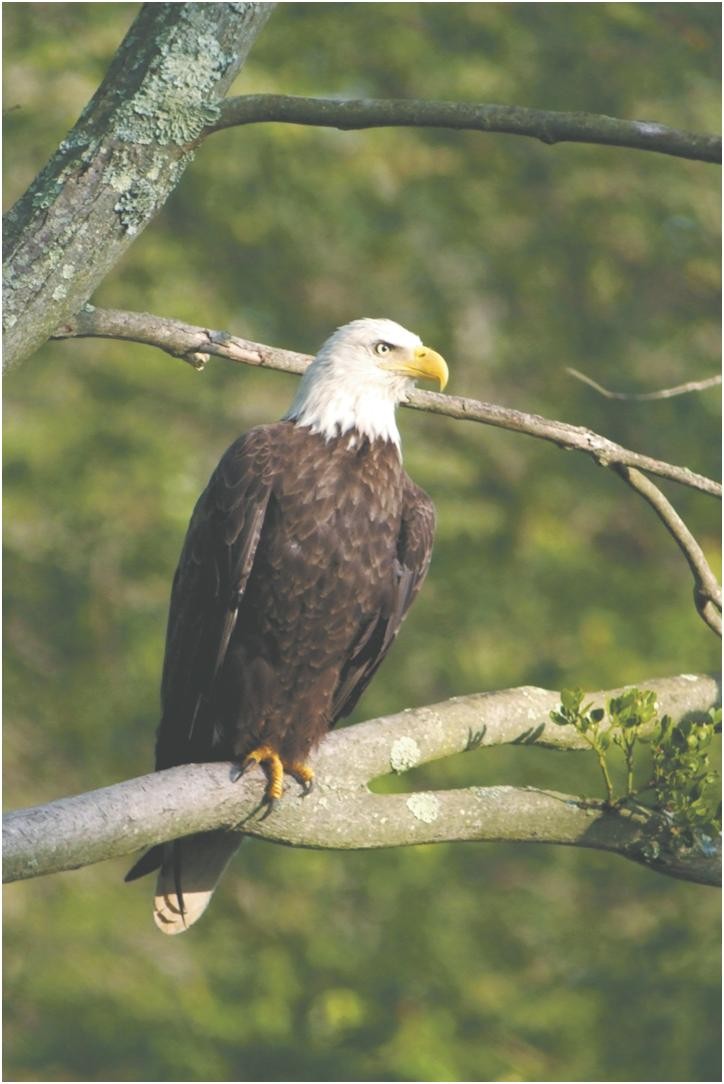ABERDEEN PROVING GROUND, Md. - The annual aerial survey of Aberdeen Proving Ground bald eagles found 162 that call APG home.
The Jan. 9 count also found one golden eagle.
Golden eagles normally migrate through the area and are not residents, according to Jessica Baylor, an environmental protection specialist with the Directorate of Public Works environmental division.
DPW environmentalists and biologists, wildlife officers from the Directorate of Emergency Services and U.S. Army Aberdeen Test Center personnel participated in the survey, which was conducted by helicopter and lasted more than three hours.
Baylor said the surveyors flew at about 500 feet over the Aberdeen and Edgewood Area shorelines, Pooles Island and the Susquehanna River shoreline to the Peach Bottom area and back looking for adult and juvenile eagles. The total count was down from last year's tally, which yielded 239.
"It's lower than last year, but it's nothing to be alarmed about unless the numbers keep going down," Baylor said.
The 2011 Mid-Winter Eagle Survey is part of a national survey of the protected species. Of the 163 total eagles, there were 88 adults and 51 sub-adults on APG.
"On the Susquehanna survey route, 13 adult bald eagles and 10 sub-adults were counted," she said.
According to the U.S. Fish and Wildlife Service, the bald eagle will continue to be protected by the Bald and Golden Eagle Protection Act even though it has been delisted under the Endangered Species Act. This law, originally passed in 1940, provides for the protection of the bald eagle and the golden eagle (as amended in 1962) by prohibiting the take, possession, sale, purchase, barter, offer to sell, purchase or barter, transport, export or import, of any bald or golden eagle, alive or dead, including any part, nest, or egg, unless allowed by permit (16 U.S.C. 668(a); 50 CFR 22).
"Take" includes pursue, shoot, shoot at, poison, wound, kill, capture, trap, collect, molest or disturb (16 U.S.C. 668c; 50 CFR 22.3). The 1972 amendments increased civil penalties for violating provisions of the Act to a maximum fine of $5,000 or one year imprisonment with $10,000 or not more than two years in prison for a second conviction. Felony convictions carry a maximum fine of $250,000 or two years of imprisonment. The fine doubles for an organization. Rewards are provided for information leading to arrest and conviction for violation of the Act.
For more information, visit http://www.fws.gov/.


Social Sharing